Introduction
This year’s Knowledge Building (KB) Design Studio, themed ‘Saving Planet, Saving Lives’, was held on the 23rd to 25th of November. The aim of the KB Design Studio was to foster a KB community among students, teachers, leaning sciences researchers and experts in various fields, and to engage participants in creative work with ideas related to the event’s central themes. The KB Design Studio was a tremendous success for everyone that took part in the experience.
“I’ve learnt how to communicate and share my ideas with people.” – Student
“Thank you for making it so meaningful and the learning so rich for all the children.” – Teacher
During this year’s KB Design Studio, 57 students between 10-16 years old, and from across schools, demonstrated their capabilities in conducting research, improving ideas, and developing and designing ideas and/or prototypes that tackled real-life problems related to wildlife and human welfare.
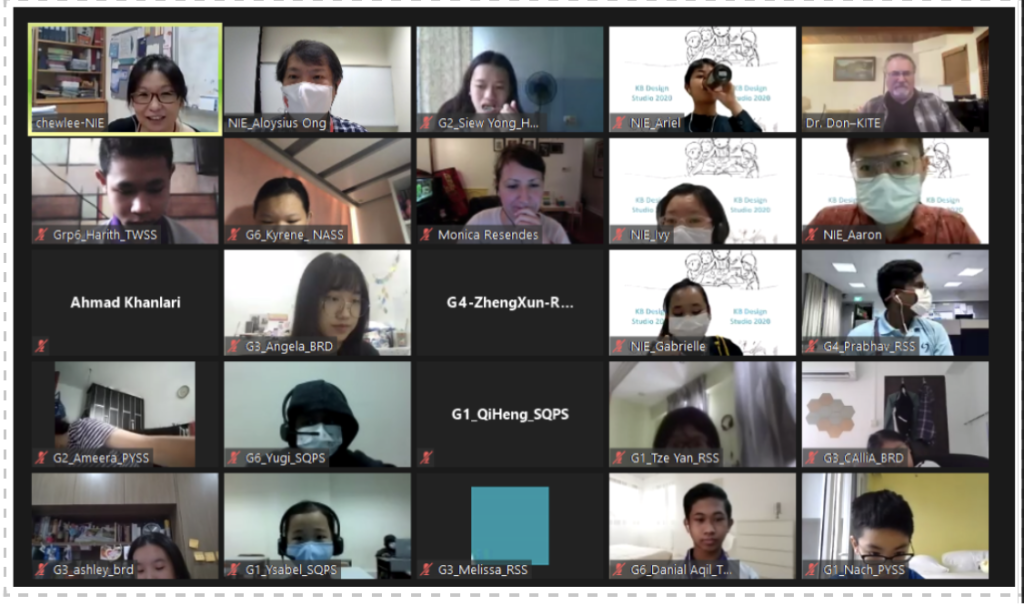
This year, our overseas experts come from the Institute of Knowledge Innovation and Technology (IKIT) at OISE and The Toronto Rehabilitation Institute (KITE), both situated in Canada. Amidst the ongoing COVID-19 pandemic, this year’s KB Design Studio was completely online. Students, teachers and experts connected virtually using Zoom, and worked collectively to share ideas related to the theme and to advance community knowledge using Knowledge Forum (KF), KF Learning Analytics, and a whole suite of creative productive tools. Students successfully leveraged the KF online environment and the available tools to engage in deep discourse with one another in this fully virtual experience. Knowledge Building principles and pedagogies were key in shaping the activities, interactions and flow of the event.
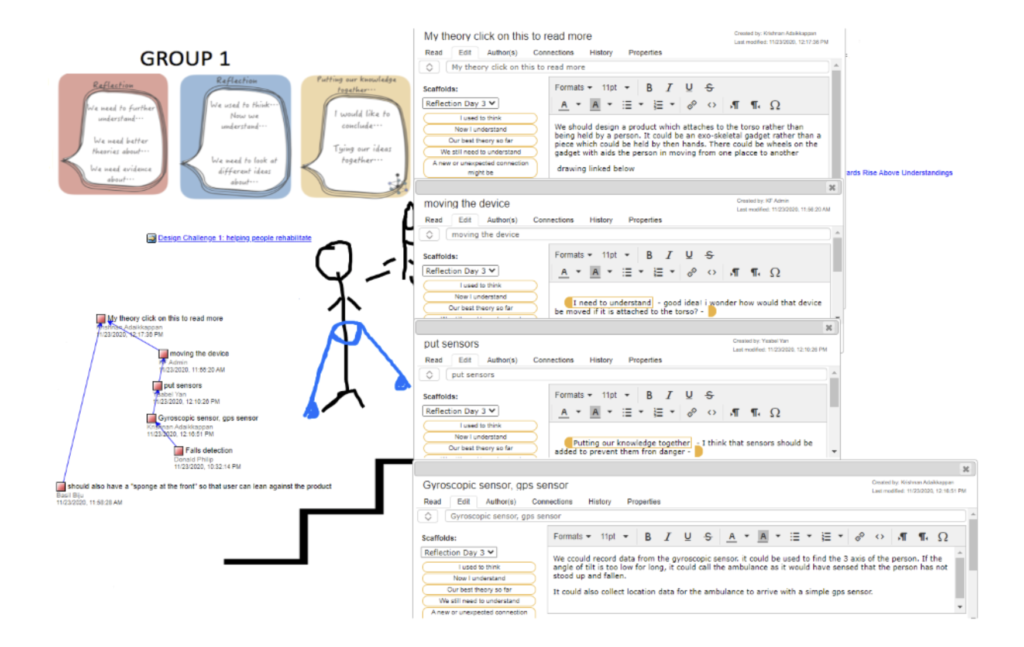
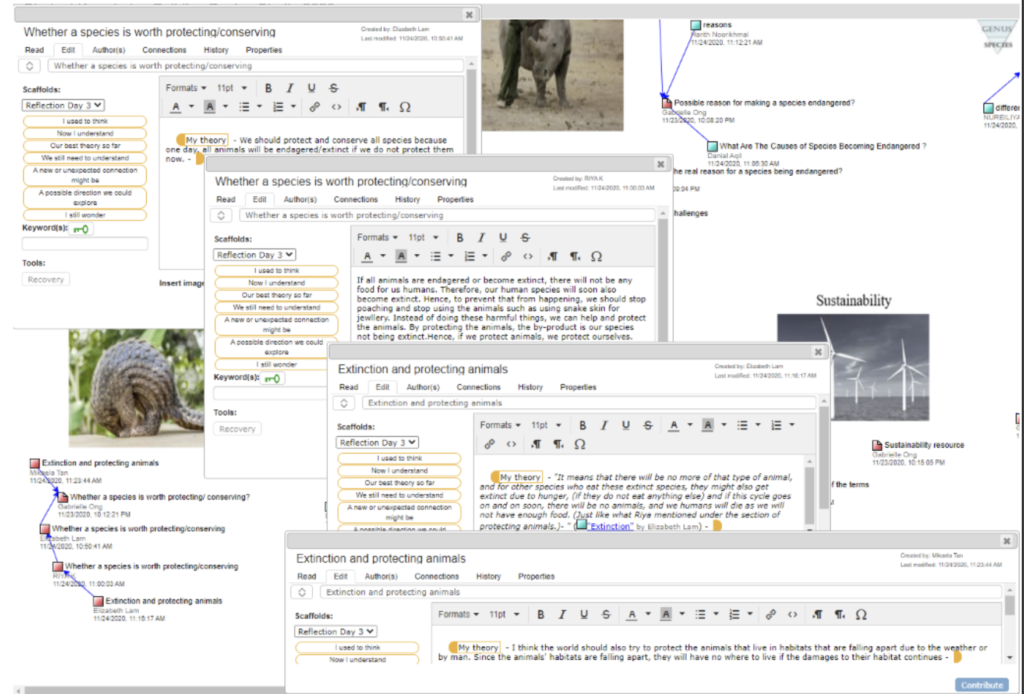
Throughout the course of the three days, students were encouraged to work hard on their ideas related to wildlife and welfare, which was facilitated through expert’s sharing information and ideas about medical simulations, wildlife and biodiversity. Through this conversation and experts’ engagement with students’ queries, students’ interest in the topics peaked, making the issues and challenges they discussed real and authentic to them. Moreover, because the experts stayed actively involved in the students’ group discussions throughout the sessions, they continued to probe students to think deeper about the topic and encouraged them to build-on each other’s diverse ideas.
Students were also motivated to improve on their ideas from the previous days through the data analytics that were presented to them every morning during the KB Design Studio. A research team from the University of Toronto shared with students the frequent words that they used (Word Cloud) as well as the common words used between groups on the KF. Thus, the students were able to identify similar patterns within and between the groups that led to deeper inquiry about what they still need to know. Without much prompting, students were able to move to higher levels of inquiry whereby they showed more KF activity. Furthermore, students reflected on the analytics and saw them as a trigger to generate new ideas or even improve on their current ideas without much prompting from the facilitators or experts. Therefore, students were actively incorporating new ideas to work on their own ideas.
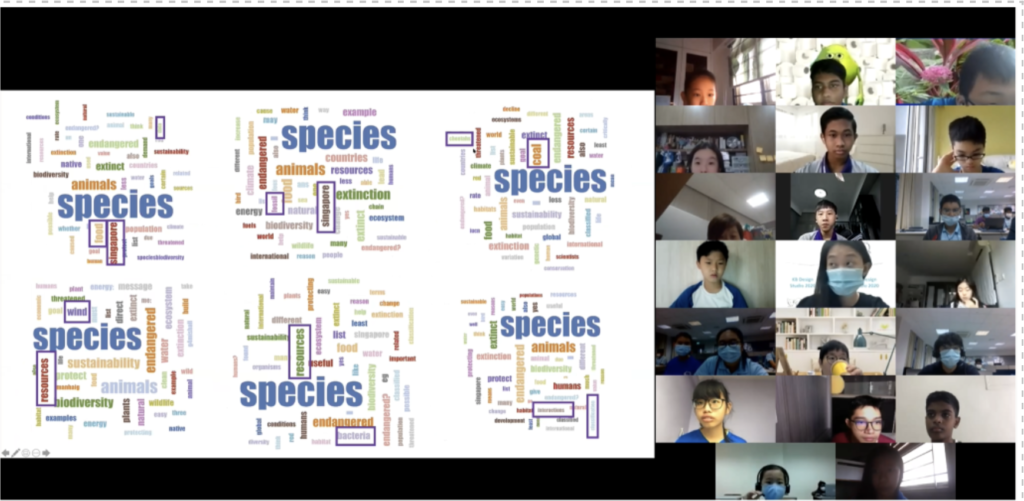
The students in the KB Design Studio also demonstrated high levels of epistemic agency, including choosing what they deemed to be a promising problem that they wanted to tackle and pursue. Throughout the three days, students identified problems, conducted research, and consolidated and integrated the diverse ideas that they had generated across the themes to get to “rise above” ideas. By collaborating on Knowledge Forum, students were able to share their experiences and knowledge about real world problems within and across their small groups, from improving the design of crutches to make them more user-friendly, to addressing the concerns of biodiversity and wildlife conservation in Singapore. Students were active contributors in growing their knowledge by researching information and building onto their peer’s notes on the online platform, and improving on their ideas to advance community knowledge. When visiting students’ groups, experts brought forth questions for students to gain deeper insight and also develop a critical mindset towards the experts’ sharing. Furthermore, the movement of nominated student representatives from each group gave students opportunities to exchange their diverse ideas across the community. Their hard work was finally presented at the end of the KB Design Studio to the whole community in the interest of supporting symmetrical knowledge advancement.
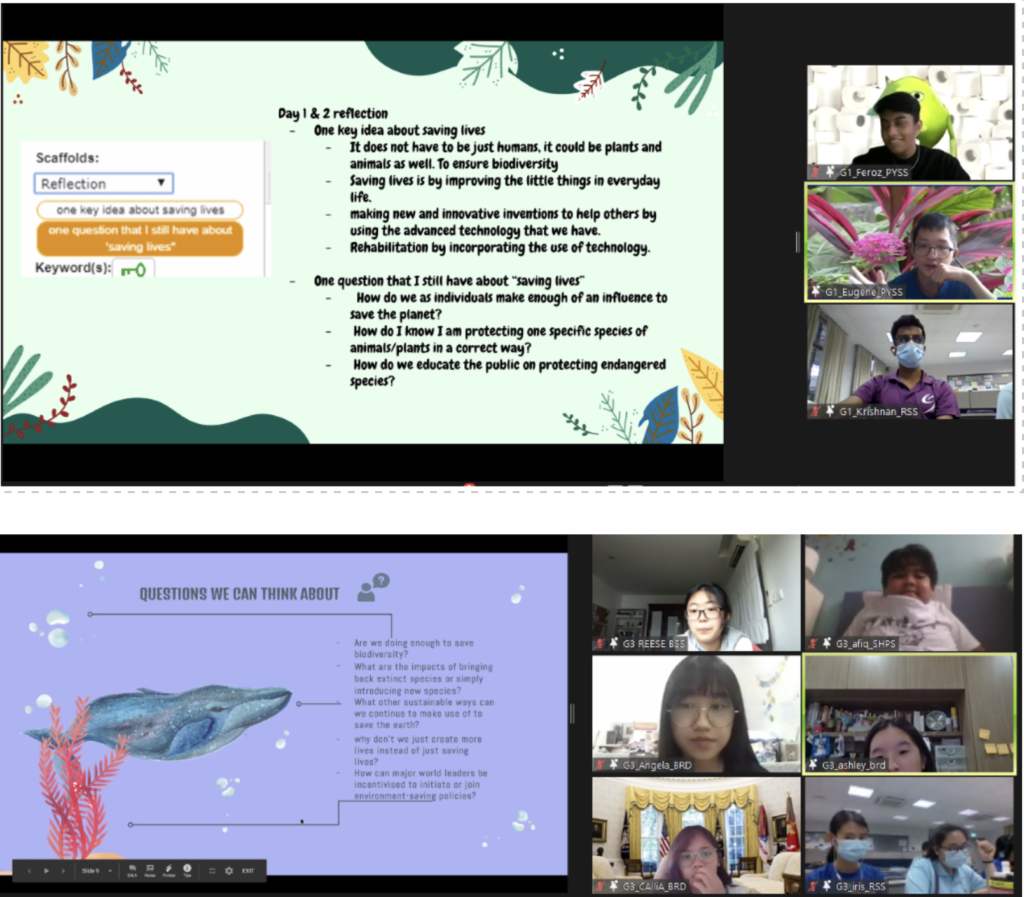
The teachers who participated in the KB Design Studio were also involved in a parallel professional development (PD) strand helmed by a Specialist from Ed Tech Division in MOE, and an NIE lecturer. The teachers discussed how to build knowledge building cultures in schools, the attributes and competencies of students as knowledge builders, and the teachers’ own KB practice as they observed student’s participation and contribution in the KB Design Studio. The teachers were very surprised, right from the start, with the questions raised by their students to the experts. They commented that was something they did not expect from the students and had reflected on what they had learnt based on their observations during the KB Design Studio that can be implemented back in their classroom.
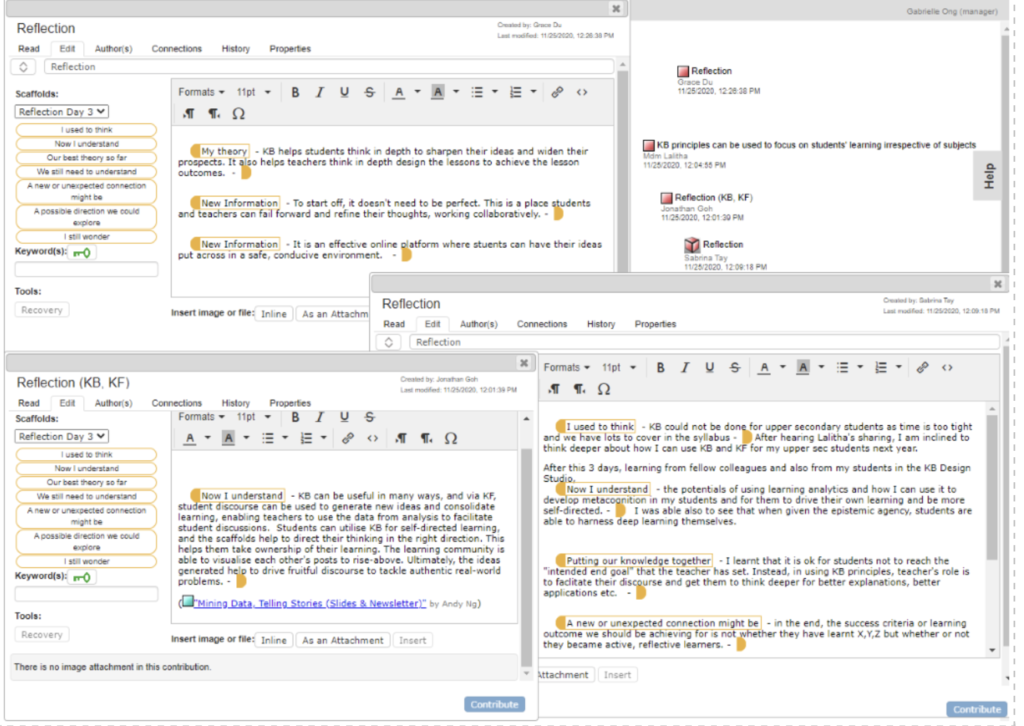
The teachers also shared their use of KB in their classrooms across a wide range of subjects, including Social Studies, Geography and History. Furthermore, they built on each other’s posts to share suggestions and ideas to facilitate and develop a KB culture back in their own schools and, as a by-product, enhance their existing KB practice as well.
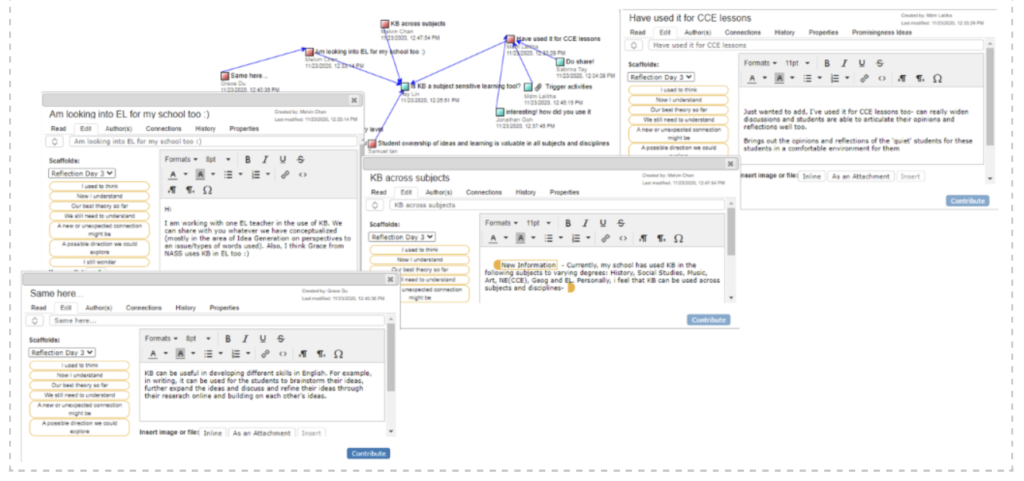
Overall, the students and teachers all greatly enjoyed this year’s KB Design Studio. They provided encouraging and highly positive responses about their experiences of the sharing from their fellow peers and experts. The students also reflected on their experiences interacting with others from different schools and ages, and on working through disagreements and diverse ideas to improve each other’s ideas. Both teachers and students felt that they benefitted greatly during this year’s KB Design Studio event.
“My group was really fun and we worked well together as we constantly tried to improve each other’s ideas.” – Student
“I cannot imagine how much work you guys put in – this is what schools need now.” – Teacher
One of the students even started expanding this year’s theme for next year’s KB Design Studio; he titled it “Save Earth, Wear Passion,” and provided concrete ideas about the flow that he hoped to see at the next KB Design Studio. The pervasiveness of students’ inquiry and interest, extending past their experience with this year’s event, shows how the KB Design Studio is not just a one-off event but rather the start of a deeper inquiry for both students and teachers alike!
